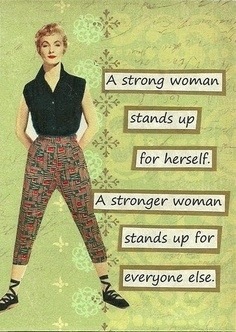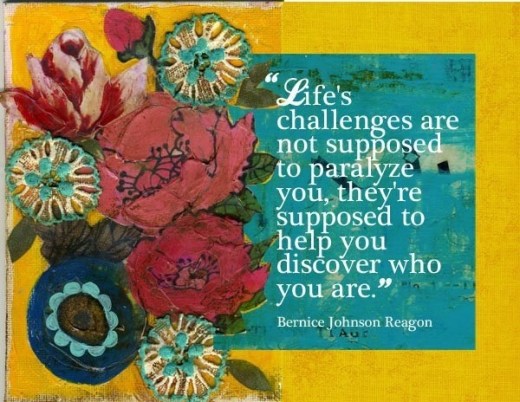Becoming a parent four years ago changed my life in more ways than I can list.
In many ways the main upheaval comes during those early days, when your world seems to have turned upside down and it feels like nothing will ever be the same again. And really, it never is.
But there’s something else they don’t warn you about and that is how your entire perspective changes. Of course, you expect that you’ll love your child and be prepared to lay your life down for them, should the need arise. You may even be somewhat prepared for the feeling that your heart now walks about independently of your body. It goes off to “Big-Boy” school without you and shows you what bravery really means. All of these scenarios are to be expected as a parent and won’t come as a huge shock.
However, nobody tells you how your view of the world changes. How you seemingly look at life through an entirely different lens. How you imagine your child enduring your own struggles in life and and how that thought makes your very soul ache.
Monkey starting school this week has brought back lots of memories for me. Some good, others not so much. This has made me very fearful of him not “fitting in” and at the same time made me think long and hard about ways in which he can be a person who reaches out to someone who may be standing alone in the playground.
It is my view that as a parent it is my responsibility to nurture human beings who are considerate and respectful of others, regardless of any differences they may have. I want them to grow-up with confidence in themselves and awareness of the world around them.
Now, my son is four. His teenage years are not exactly around the corner (although at this rate they’ll be upon us before we know it), but I can’t help worrying about the future. At the risk of sounding incredibly ancient, the world is such a different place to that in which I spent my teenage years. In the mid nineties we didn’t have mobile phones and we didn’t use the internet. Any bad choices we made as teenagers were not documented photographically and thrust in to the public domain to haunt us forever. Any boy who wanted to take me out had to first phone the house-line and get past my mum. Any bullying usually stopped at the school gates. It certainly didn’t follow you home and in to your bedroom to virtually harass you until you couldn’t take any more. Things are so different now and it terrifies me.
The role society has in shaping young minds should never be underestimated and it’s with this in mind that in recent months I have been reading and learning as much as I can about feminism.
As a mother of both a son and a daughter I feel a huge responsibility to ensure my children learn to listen as well as to speak up when they feel it’s necessary. I want my daughter and my son to be treated equally by society; to be judged on their merits and not their gender and for them to offer the same courtesy to others.
Now I have never knowingly experienced overt sexism. I used to work on a busy trading floor of a very large national newspaper and even then I don’t remember a single instance of gender-based prejudice being aimed at me or any of my colleagues. Until recently, if you’d asked me if women in the UK have equality I’d probably have replied in the affirmative. I’d have thanked my feminist predecessors kindly for their work in getting us the vote, equal opportunities and sexual equality. Surely there is not much more to be done?
Let me ask you this: Have you consumed much media recently?
I mean really looked at the messages out there? Seen a pair of boobs staring up at you from page three of the country’s best selling newspaper? Have you ever thanked the heavens above that your daughter can’t yet read when you look at the front page of a men’s magazine? or a women’s magazine? Because I have.
I’ve never had a great body-image. I’ve written lots on this topic before. I am very conscious of not passing this trait on to my children. But I’m far from being the only influence on them. It frightens me that every magazine, every advert and every music video perpetuates an ideal that women have to look and behave a certain way in order to fit in or be worthy of attention. We live in such a hyper-sexualised society that most of us don’t bat an eyelid when sex is used to sell us everything from yoghurt to white-goods.
Until I became a parent this never really bothered me. Yes, I’d often compare myself with celebrity women in magazines and follow the latest diet crazes. I’d look at Beyonce in her leather basque or Jessie J in her catsuit and I’d wish I could look like them. But I never felt they should cover-up. Nor do I think that now, for that matter. I believe a woman should be able to wear whatever she pleases, surely that is one of the cornerstones of modern feminism?
However, as the mother of small children, I find myself with a lot of conflicting thoughts. It concerns me greatly that younger and younger girls are exposed to overtly sexual imagery in their day-to-day lives, to the extent that they’re having to grow up too fast. I certainly don’t want to censor the freedom of expression of any woman. But I want my son to see women as more than a pretty face or figure. I never want my daughter to base her self worth and feelings of belonging on her weight or appearance. I don’t ever want her to feel that she has to exhibit behaviours beyond her years because of societal pressures which tell her that she has to be sexy in order to be successful or to fit-in.
Feminist theory pins much of the responsibility for our hyper-sexualised culture on the Patriarchy, which is defined as “A system of society or government in which men hold the power and women are largely excluded from it.” In other words, us women are looking and behaving a certain way in order to please or attract in a male-dominated society.
I can agree with this logic to a degree, but at the same time women campaigned hard for the right to wear whatever we choose. To look and behave however we like (within the parameters of the law, at least). I completely respect this and applaud women’s freedom of expression. But here follows another of my conflicting views; we have the freedom, to express ourselves, but is it always necessary or appropriate?
You may have seen Miley Cyrus’ performance at the VMAs recently. She performed a very sexual dance routine wearing a skin-coloured PVC bikini and received a great deal of criticism for a number of reasons. My view, on the surface at least, was that a woman should be able to behave and wear what she likes without judgement.
The term “slut shaming” is used when a woman is discriminated against or shamed for behaviour which is seen to be sexually excessive. Slut-shaming has sinister connotations because it is often used as a form of victim-blaming in rape culture; ie, a woman who dresses a certain way is “asking for it” or somehow deserves what she gets. On the surface this culture may seem far-removed from you and your children. But think of it this way: Would you want your son to ever think that a woman is “fair game” because she dresses a certain way? How would you feel if your daughter joins high school and is made to feel inferior because she doesn’t want to wear a mini-skirt? Or how about if she is an early developer? Does that give boys or men the green-light to tease or objectify her? To wave Page Three in her face and mark her out of ten? How will this impact on her self worth in years to come?
Going back to Miley Cyrus, you can see where my inner conflicts abound.
When you really study her performance, Miley was objectifying herself and her dancers. She has a huge following of young girls who will want to emulate her looks and her moves. If we slut-shame Miley, we are perpetuating an idea that it’s acceptable to judge and censor her (and millions of other women) for her freedom of expression. But on the other hand, doesn’t Cyrus have a responsibility as a woman and a role model to set an example? Just because a woman has the right to behave how she chooses does not always make her behaviour appropriate. Life isn’t black and white, I suppose.

If you believe that there is already equality between men and women, can I politely suggest that you look a little closer, as I have done? Look at (most) women’s magazines, for example. Particularly celebrity weeklies. Each front page is filled with stories of celebrity weight gains and losses. Usually these pictures are accompanied by text explaining how such-and-such is dieting to get or to keep a man. How her career has been negatively impacted by weight-gain or a poor outfit choice. An image make-over is usually seen as the solution to any crisis.
Afterwards check out the cover of a weekly men’s magazine. You won’t find the same stories there.

Another of my inner-conflicts with regards to feminism is the fact that I do believe that boys and girls are different. My daughter will seek out the only doll in a toy box. My son will not. Both will have a wonderful time playing with fire-engines and cars. I absolutely disagree, however, with toy stores having a blue and a pink area to determine which gender a toy is appropriate for. I think this is hugely limiting.
Biological Determinism in the context of feminism is the notion that males and females are biologically different in terms of their mental strengths, weaknesses and capabilities. The theory is that women are sensitive and nurturing whilst boys are aggressive and adventurous. In other words, gender is biological rather than social so it’s not worth challenging. Also known as Biological Essentialism, this theory is often used as an excuse for pigeon-holing and perpetuating gender stereotypes. At worst it becomes dangerous when, for example, it’s used to excuse male sexual violence. At best it can often be used as a get-out-of-jail-free card to explain the limiting of women and to justify sexist behaviour as simply “boys being boys”. Despite hundreds or studies having been undertaken, none have proved that differences between gender are biological rather than social. My perspective as a parent is that if differences are social, there is absolutely no reason why my children and I can’t work towards challenging them.
Another area in which I feel conflicted is the topic of beauty in women and girls as a defining characteristic. (I’ve written on this topic before, here). As someone who spent thirteen years working in magazine and newspaper advertising, I am well aware of the importance of commercial revenue to a publication. It is no coincidence that magazines push an ideal that beauty and image is the source of eternal happiness. If only you buy this, or eat that (especially if this or that is available from our advertisers) you will be beautiful. You will then find love and you will subsequently be happy. A woman’s looks are seen to be her commodity in the present day.
But what about our children? I’ve already said that I don’t want my daughter to measure her worth on a scale, or on whether she has a socially acceptable fashion sense or a beautiful face. But at the same time, I can’t deny the environment we live in. I want her to feel beautiful and I will tell her she is beautiful whenever I feel like it. But I will also help her to see that she ( and all other little girls and women) is worth so much more than her looks.
“I made a promise to endow my little girl with the power to always know that her body, spirit and her mind are HER domain. Willow cut her hair because her beauty, her value, her worth is not measured by the length of her hair. It’s also a statement that claims that even little girls have the RIGHT to own themselves and should not be a slave to even their mother’s deepest insecurities, hopes and desires. Even little girls should not be a slave to the preconceived ideas of what a culture believes a little girl should be.” – Jada Pinkett Smith
There was a time when women were expected to be seen and not heard; First-wave feminists fought for the right to be heard and to vote. Second-wave feminists fought for freedom in the workplace, sexual equality and reproductive rights. Then in the nineties and beyond third-wave feminists battled for all all-encompassing, intersectional and inclusive approach to feminism which welcomed women from all backgrounds and abilities. So much has gone into making the world a better place for women as a result of the hard work of our sisters.
Once women didn’t have voices, only pretty faces. Now, I worry perhaps we’ve taken our own voices away by embracing our sexual and expressive freedoms to such an extent that that girls are now being objectified rather than listened to. In today’s highly image-led, hyper-sexualised society I wonder if we’ve gone back to being seen and not heard, again?
As with parenting in general, there doesn’t have to be an all-or-nothing approach to teaching feminist values to our children. We can recognise social differences between children of differing genders, of course we can. But just as one little boy will be more sensitive than another, we must recognise and reinforce that differences between us are to be celebrated, not used an excuse to limit ourselves or our children.
I believe constant discussion with our children and leading by example will keep the conversation moving forward.
To quote Everyday Feminism:
“Feminist Parenting asserts that teaching and modeling self-respect and respect for others set in all aspects of a child’s upbringing is the best foundation for compassion and respect.”
As the parent of children of both genders, it is down to me to mould a new generation of feminists. Children who can recognise social discrepancies between the genders and challenge them.
In reference to Beyonce and Jessie J, earlier on in this article, I want to make sure that my son and daughter recognise and appreciate the beauty of the women dancing on the TV. But at the same time we all need to see past the airbrushed and styled imagery and its representations, whilst paying attention, hearing and challenging life’s lyrics, too.
-
I’ve got so much more to say on this topic, but this post is already way too long. Thanks for sticking with me this far! Please note that I am absolutely not an expert on feminism and there are undoubtedly lots of gaps in my knowledge. I welcome your comments on this article but please share them the with kindness and respect in which this post was written. All comments are moderated.
Please help share the love by liking the Mummy Kindness Facebook page here





